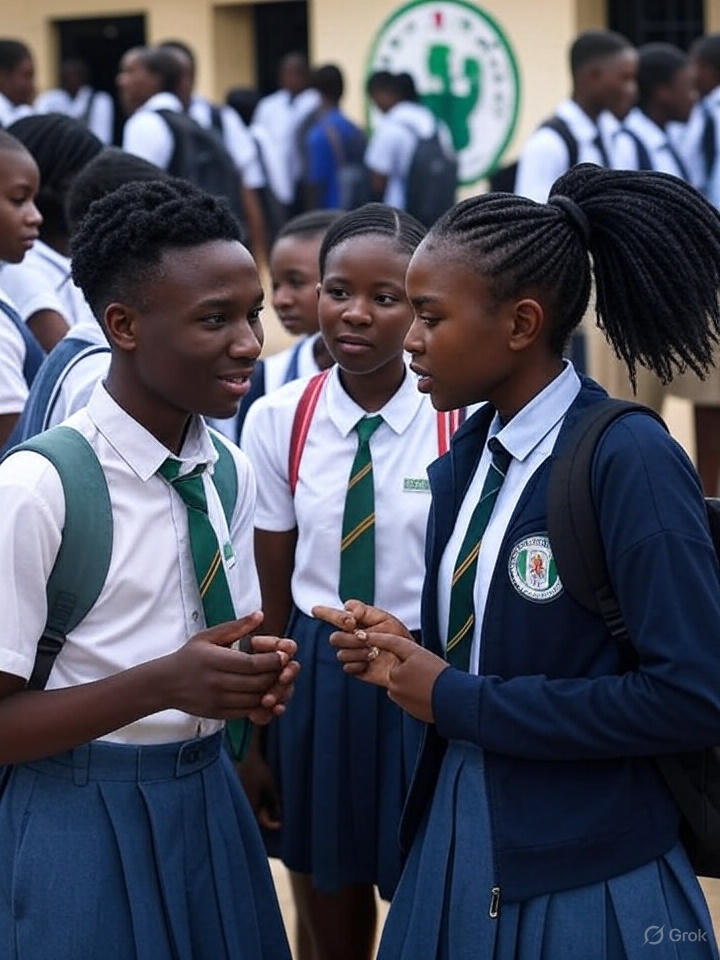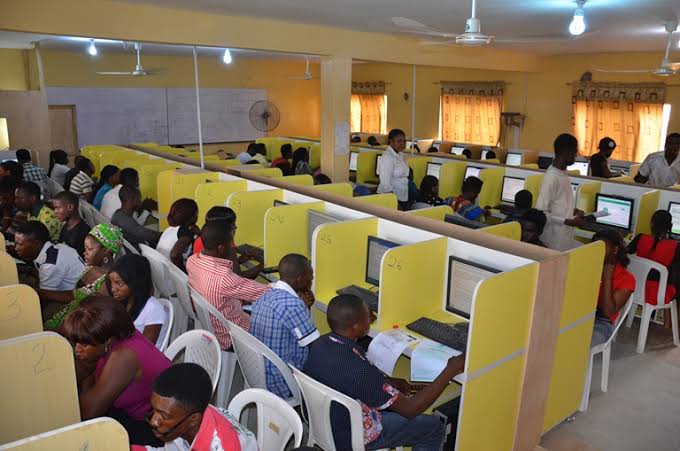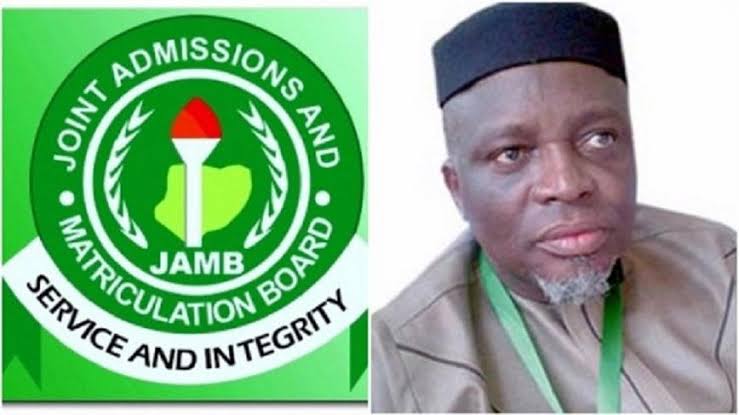
Daniel Otera
In Nigeria, the pursuit of higher education is a cornerstone of ambition and opportunity, yet the 2025 Unified Tertiary Matriculation Examination (UTME) has spotlighted a critical issue: over 41,000 students below the age of 16 attempted to secure university admission, defying age restrictions and exposing systemic flaws in the nation’s educational framework.
This phenomenon highlights challenges in age verification, policy enforcement, and academic preparedness, prompting the Joint Admissions and Matriculation Board (JAMB) to implement an unprecedented screening exercise for exceptional underage candidates. As Nigeria grapples with these complexities, the interplay between talent recognition and policy compliance raises pressing questions about the future of its tertiary education system.
According to JAMB’s 2025 registration dashboard, 41,027 candidates under the age of 16 registered for the UTME, representing approximately 2% of the 2.03 million total applicants. Of the 1,955,069 candidates who sat for the exam, 40,247 were underage, reflecting a significant number of young students attempting to bypass Nigeria’s minimum university admission age of 16.
However, their performance mirrored broader trends of academic underachievement: only 599 underage candidates (1.16%) scored above 300 points out of a possible 400, qualifying them for a special screening exercise scheduled for September 22–26, 2025.
This screening, designed to assess both academic prowess and cognitive maturity, will be conducted across three strategic locations: Lagos, hosting 397 candidates (66%); Owerri, accommodating 136 candidates (23%); and Abuja, with 66 candidates (11%). The concentration in Lagos underscores the southwestern region’s robust educational infrastructure and higher applicant numbers, while Owerri and Abuja indicate significant participation from the southeast and northern regions, respectively. This regional distribution suggests disparities in access to quality education and awareness of admission policies across Nigeria.



The 2025 UTME results paint a sobering picture of academic performance across all age groups. Over 75% of candidates more than 1.5 million scored below 200 points, a critical benchmark for university eligibility. Among underage candidates, the success rate was even lower, with only 467 achieving scores above 300. Comparatively, 4,756 candidates overall scored above 320, and 7,658 scored between 300 and 319, highlighting the exceptional nature of high performers.
This trend is not an anomaly. In 2024, 76% of the 1.9 million UTME candidates scored below 200, signaling persistent gaps in secondary education preparation. The low success rate among underage candidates (1.16%) suggests they face similar challenges as their older peers, including inadequate curricula, limited access to quality teaching, or insufficient exam preparation. Despite these challenges, the 599 underage candidates who qualified for screening represent a small but remarkable cohort of exceptional talent, capable of excelling despite systemic shortcomings.
Nigeria’s minimum university admission age policy has been a source of contention, contributing to the surge in underage applicants. The Federal Government, through Education Minister Dr. Tunji Alausa, recently reaffirmed 16 as the minimum age for tertiary admission. However, this policy followed a controversial reversal from 18 to 16, prompted by protests from stakeholders, including parents and educators, during JAMB policy meetings. The flip-flopping has created confusion, encouraging underage registrations and straining the admission process.
The lack of robust age verification mechanisms exacerbates the issue. JAMB reported 62 cases of examination malpractice in 2025, though age falsification was not separately categorized. Weak verification systems during registration allow underage candidates to slip through, undermining policy enforcement. The upcoming screening exercise aims to address this by requiring exceptional academic performance and demonstrated maturity, discouraging age falsification while recognizing talent.
Led by Professor Taoheed Adedoja, JAMB’s technical subcommittee has developed a rigorous screening methodology to evaluate the 599 eligible underage candidates. The process includes subject-specific examinations and brief oral interviews to assess academic capability and cognitive maturity. Candidates must meet stringent criteria: a minimum UTME score of 320, at least 80% in post-UTME examinations, and 80% performance (24 out of 30 points) in single-sitting West African Examinations Council (WAEC) or National Examinations Council (NECO) results. These benchmarks ensure that only exceptionally prepared candidates are considered for admission.
JAMB Registrar Professor Ishaq Oloyede emphasized that the screening aligns with international best practices for managing gifted young students.
“People have been doing it in other parts of the world. We are not reinventing the wheel,” he noted, referencing global approaches that balance academic achievement with developmental readiness.
The inclusion of WAEC/NECO results as a verification mechanism further ensures a comprehensive assessment of candidates’ academic preparedness beyond standardized test scores.
Despite the screening initiative, four universities Air Force Institute of Technology (Kaduna), Abubakar Tafawa Balewa University (Bauchi), University of Jos, and Osun State University have adopted firm stances against admitting underage candidates, regardless of academic performance. These institutions cite concerns about cognitive development, social integration, and the additional support required for younger students in university environments. Their positions reflect a broader debate about whether academic excellence alone justifies early admission, given the social and emotional demands of tertiary education.
This resistance underscores the tension between policy compliance and talent recognition. While Nigeria has a storied history of producing exceptional scholars who excel globally, the current system struggles to accommodate academically advanced young students without compromising developmental considerations. The screening exercise represents a compromise, aiming to identify those rare candidates who demonstrate both academic brilliance and the maturity to thrive in higher education.
Recognizing the need for structured pathways for young talent, JAMB introduced the UTME Mock Trial for 2025, a preparatory exam for underage students not yet eligible for the actual UTME. This initiative allows younger students to familiarize themselves with the exam format, fostering preparedness without undermining age policies. The program signals institutional acknowledgment that exceptional students require specialized support rather than blanket exclusion from higher education opportunities.
The September 2025 screening exercise will set a precedent for managing underage candidates in Nigeria’s tertiary education system. The success rates and subsequent academic performance of admitted candidates will inform future policy development, potentially leading to more flexible frameworks that balance talent recognition with developmental readiness. Professor Oloyede’s technical committee approach suggests a scalable model that could be adapted for future cohorts, establishing sustainable practices for nurturing Nigeria’s brightest young minds.
The surge in underage UTME applicants and the persistent underperformance across all candidates (75–76% scoring below 200 in 2024 and 2025) raise critical questions about Nigeria’s educational pipeline. The data points to systemic issues, including outdated curricula, inadequate teacher training, and limited access to quality resources, particularly in underserved regions. The gender shift in 2024, with female candidates (50.6%) surpassing males for the first time in three years, highlights evolving demographics and the need for inclusive educational reforms.
To address these challenges, JAMB’s role as a gatekeeper of tertiary education is pivotal. By managing a large-scale examination process 1.9 million candidates in 2024 and 2.03 million in 2025 JAMB facilitates access to higher education while collecting data to inform policy decisions. However, the board must strengthen age verification mechanisms, potentially through digital tools or biometric systems, to reduce ineligible registrations. Additionally, investments in secondary education, such as curriculum modernization and teacher professional development, are essential to improve overall UTME performance.
The 2025 UTME underscores Nigeria’s complex educational landscape, where ambition and talent collide with policy constraints and systemic deficiencies.
